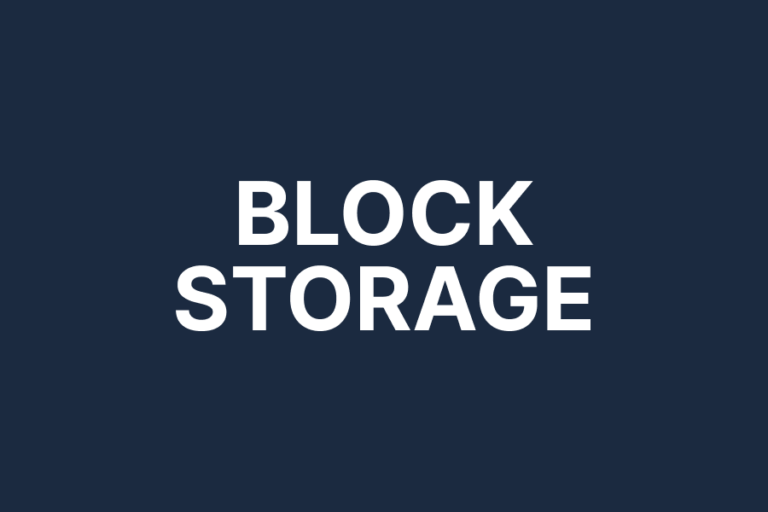The term “block storage” has emerged as a buzzword, often causing confusion due to its association with blockchain technology. However, block storage is an entirely different concept, with its own unique set of features and applications.
Block storage is not about storing data on the blockchain, as many might assume. Instead, it focuses on creating a highly available, cost-effective storage service by utilizing multiple nodes to store data.
The confusion often arises from the similarity in terminology. While blockchain involves the decentralized storage of transaction data in a chain of blocks, block storage is more about conventional data storage.
Block storage operates by dividing data into blocks, each of which is stored as a separate entity. These blocks can be accessed independently, making it ideal for various use cases where data retrieval speed and flexibility are crucial.
Implementations of Block Storage
To appreciate the adaptability of block storage, it is essential to explore some of its notable implementations across different blockchain platforms:
Bitcoin, the pioneer of blockchain technology, uses block storage to save each block as a file. The filename serves as a representation of the block’s height and is generated sequentially. This approach simplifies data retrieval and ensures that the data is organized efficiently.
Hyperledger Fabric, a permissioned blockchain framework, also leverages block storage. However, it follows its own unique methodology, storing blocks as files in a manner that suits its specific requirements.
Ethereum, another well-known blockchain platform, employs LevelDB as its underlying database engine to store blocks. This choice offers robustness and performance, enhancing the overall Ethereum experience.
Fisco-Bcos takes a distinctive approach by using an Advanced Mass Database (AMDB) for distributed storage. This solution supports both relational and key-value databases by designing table structures and implementing storage drivers tailored to different databases.
Block Storage Use Cases
Block storage is widely used in enterprise environments where reliability and data availability are paramount. The ability to scale storage capacity seamlessly and allocate resources on-demand makes block storage a go-to choice for businesses.
In the realm of cloud computing, block storage plays a pivotal role in providing high-performance storage solutions for virtual machines and container orchestration platforms. The ease of attaching and detaching storage volumes makes it an indispensable component of cloud infrastructure.
Big data applications often rely on block storage to store vast datasets efficiently. By breaking data into manageable blocks, organizations can process and analyze information more effectively, facilitating data-driven decision-making.
Applications that demand high throughput and low latency, such as databases and content delivery networks (CDNs), benefit greatly from block storage. It ensures rapid data access and minimizes latency, enhancing user experiences.
The Future of Block Storage
As technology continues to evolve, the future of block storage holds exciting prospects. Here are some trends and developments to keep an eye on Enhanced Data Security, Integration with AI and ML, Hybrid and Multi-Cloud Adoption, and Scalability and Performance.
With the increasing emphasis on data security and privacy, block storage solutions are likely to incorporate advanced encryption and access control mechanisms to protect sensitive information. Block storage can synergize with artificial intelligence (AI) and machine learning (ML) to optimize data management and analysis. This integration could lead to more intelligent and efficient storage solutions.
Hybrid and multi-cloud environments are becoming increasingly common. Block storage will play a pivotal role in ensuring seamless data movement and storage across diverse cloud providers. Continuous improvements in hardware and software will enable block storage systems to offer even greater scalability and performance, meeting the demands of modern applications.



